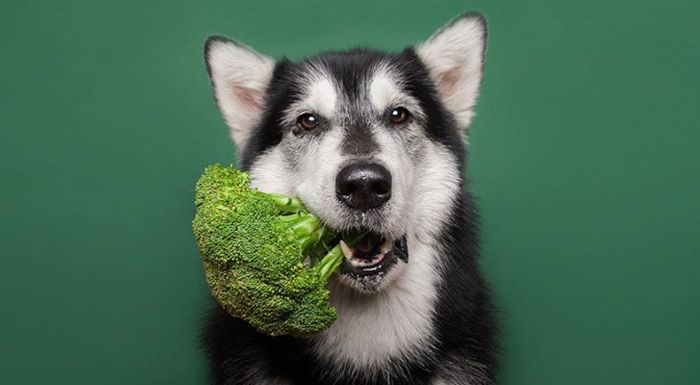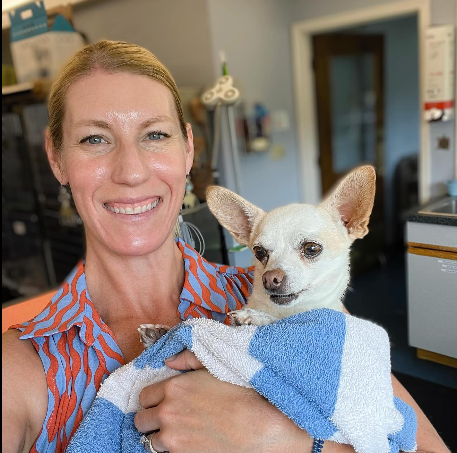A key component of proper pet ownership is adhering to our beloved dogs’ dietary needs. Dietary fiber is one of the many important aspects of dog nutrition that is frequently overlooked. But it’s a crucial element that has a big impact on our friends’ general wellbeing. We take a deep dive into the topic of dietary fiber for dogs in this extensive tutorial. It is a path that entails figuring out the complex aspects of their nutritional requirements, realizing the value of fiber, and appreciating its crucial position in their diet as a whole. In order to give our dogs the best care possible, responsible dog owners must first understand the basics of their diet, and fiber is a crucial component that is no longer overlooked.. This guide seeks to demystify the world of fiber for dogs, shedding light on its significance and helping pet owners make informed decisions for the optimal health and happiness of their canine companions.
Table of Contents
Do Dogs Need Fiber?
At the heart of dogs’ nutritional requirements is the fundamental question of whether or not they need dietary fiber. It is very similar to human nutritional issues. Like humans, dogs can gain a great deal from eating a diet that has the right amount of dietary fiber in the right amounts.
Dietary fiber, sometimes referred to as the indigestible part of food, is important for a dog’s health in a variety of ways. It is crucial to the health of their digestive system because it supports regular bowel movements, nutritional absorption, and the preservation of a favorable gut environment. Apart from the problems related to digestion, dietary fiber can also impact their general health.
For dogs, the idea of a balanced diet holds true, just like it does for people. In order to achieve this balance, fiber is essential, and its significance cannot be overstated. We are starting to learn about the important ways that fiber improves their quality of life and health as we investigate its function in their diet.
How Much Fiber Do Dogs Need?

For dogs’ dietary health, figuring out how much fiber is appropriate is a crucial problem. Your dog’s recommended fiber intake depends on a number of factors, each of which adds to their specific nutritional needs. Let’s now examine the important variables that help determine how much fiber your dog should be getting:
1. Age: The age of a dog has a big impact on how much fiber they need. Generally speaking, puppies need a diet that is higher in protein and energy, but not unduly high in fiber. However, to support their aging digestive systems and avoid constipation, senior dogs may benefit from consuming more fiber.
2. Breed and Size: The nutritional needs and metabolic rates of different breeds and sizes vary. Larger breeds may require proportionately less fiber than smaller breeds, depending on the size of their bodies.
3. Activity Level: The amount of activity a dog engages in determines how much fiber they require. Dogs that are more active might need more fiber to meet their energy needs and maintain healthy digestive systems.
4. Health Conditions: Some health conditions, such as obesity or diabetes, may require dietary adjustments with specific fiber content to manage these conditions effectively.
5. Dietary Preferences: A dog’s diet choices, such as whether they eat homemade meals or commercial dog food, can affect how much fiber they consume. While homemade dog diets allow for greater flexibility in fiber sources, commercial dog foods frequently provide a standardized fiber content.
Understanding Fiber in Dog Food
Knowing what ingredients are in their food will help you give your dog the best nutrition possible. In order to make sure your pet is receiving the proper amount of fiber in their diet, we break down the many forms of fiber that can be found in dog food, where to get dietary fiber, and how to read labels. This information is essential for making wise nutritional decisions for your dog, which will eventually improve their long-term health and well-being.
Sources of Fiber for Dogs: 10 Healthy Options
Beet Pulp
Beet pulp is a great source of fiber for dogs. It is a byproduct of making sugar beets and contains both soluble and insoluble fibers. Soluble fiber aids in blood sugar regulation, whereas insoluble fiber supports digestive health. It is commonly found in dog food purchased from stores and can be supplemented to promote regular bowel movements.
Ground Flaxseed
An outstanding addition to your dog’s diet is ground flaxseed. It has omega-3 fatty acids and is high in fiber, which support healthy digestion and a glossy coat. You can add flaxseed to your dog’s food to boost his intake of fiber and offer additional nutritional advantages.
Pumpkin
Dogs adore pumpkin as a source of fiber. Its high soluble and insoluble fiber content facilitates digestion and controls bowel movements. Additionally helpful in controlling weight, pumpkin is frequently suggested for dogs with sensitive stomachs.
Oats
For dogs, oats are not only a healthy grain but also a fantastic source of dietary fiber. They encourage a fullness sensation and offer gradual release of energy. Oats can be fed to your dog as homemade treats or in specially prepared dog food.
Kelp
For dogs, kelp is an exceptional source of fiber because it provides a variety of vital nutrients in addition to fiber. It is well known to promote a healthy digestive system and skin/coat integrity. Supplements containing kelp come in different forms and can be helpful for dogs with particular dietary requirements.
Lettuce
For dogs, lettuce can be a wholesome, low-calorie source of fiber. It can be a refreshing and hydrating addition to their diet, especially when used as a treat or added to their meals in small quantities, even though it doesn’t have as much fiber as other options.
Apples
Because apples are naturally sweet, they are a fibrous and wonderful food that many dogs adore. Not only are apples delicious, but they are also highly nutritious for our canine companions. Dietary fiber, which is found in apples, is crucial for preserving the health of the digestive system because it promotes regular bowel movements and helps prevent constipation.
The crisp texture of apples may also be beneficial to your dog’s dental health. Chewing apple slices can help prevent plaque and tartar buildup on teeth, which can enhance oral hygiene in general. It’s a good way to keep their teeth shining and their breath fresh.
Carrots
Dogs find carrots to be a crunchy and tasty vegetable that is high in fiber. They are abundant in vitamins, fiber, and beta-carotene. Carrots are a nutrient-dense, low-calorie snack that can help with digestion and dental health.
Vegetables:
Dogs can benefit greatly from a wide variety of vegetables as high-fiber food sources. Vegetables high in fiber and essential vitamins and minerals include broccoli, green beans, and carrots. These vegetables offer a nutrient boost and support healthy digestion. They can be served fresh, steamed, or as part of a homemade dog food recipe.
Green Beans:
For a number of reasons, green beans make a fantastic addition to your dog’s diet. They are an excellent option for dogs who are having trouble controlling their weight because they are low in calories and high in fiber. In addition, green beans offer important minerals and vitamins, such as manganese and vitamin K. Steam-roasted or served crunchy, they provide a fun and healthful way to up your dog’s fiber intake.
Brown Rice:
Whole grains like brown rice offer a significant amount of dietary fiber. It’s a great source of complex carbohydrates and, unlike white rice, it keeps the nutrient- and fiber-rich bran layer. To support a healthy digestive system and general well-being, brown rice can be a main ingredient in homemade meals or served as a side dish with lean proteins for your dog.
Strawberries and Blueberries:
Dogs can enjoy tasty treats like blueberries and strawberries, which also provide a substantial amount of dietary fiber. These fruits’ natural sugars, fiber, and antioxidants can help maintain the health of the digestive system. They can be a delicious way to boost your dog’s fiber intake and offer a number of other health benefits, such as immune system support and tasty diet variety, when fed in moderation.
Fiber Supplements for Dogs:
Supplements are essential for improving your dog’s general health and wellbeing since they meet certain nutritional requirements. Making sure your pet has enough fiber is one of these necessities that cannot be overlooked. When taken sparingly and in accordance with a veterinarian’s recommendations, fiber supplements can be a useful way to help your dog get the fiber they need.
Supplements can be an essential tool for maximizing your dog’s nutritional intake, especially if their usual diet might not be giving them enough fiber. Dogs who require these specialized supplements might gain a great deal from them, regardless of the reason—specific medical conditions or dietary choices. They assist regular bowel motions, aid in maintaining digestive health, and enhance a diet that is balanced.
Is Metamucil a Good Source of Fiber for Dogs?:
Although metamucil was initially created as a fiber supplement for humans, in certain situations it might be a beneficial addition to a dog’s diet. But getting expert advice from a veterinarian is essential to utilize Metamucil for your dog friend properly.
Veterinarians have the skills and experience required to assess whether Metamucil is a good fit for your dog’s particular needs. They take into account things like your dog’s age, size, general health, and any current medical issues. In addition, the veterinarian may offer detailed guidance on the right dosage and method of administration, guaranteeing the security and welfare of your dog.
Incorporating Metamucil without professional advice can lead to potential issues, including incorrect dosages or adverse reactions. By entrusting your dog’s fiber supplement regimen to a veterinarian, you guarantee that it aligns with their specific dietary requirements, thereby promoting optimal digestive health and overall vitality. Always remember that the health and well-being of your furry friend should remain a top priority, and consulting a veterinarian is the safest path to achieve this goal.
What to Do If You Think Your Dog Needs More Fiber:
Taking the right steps to address this nutritional concern is crucial when you have reason to think that your dog may benefit from eating more fiber. The first step is to identify the symptoms of a possible fiber shortage, which include irregular bowel movements or digestive problems. It’s critical to seek a veterinarian’s expert opinion for an assessment as soon as these symptoms are recognized. The veterinarian can evaluate the general health, dietary needs, and underlying medical concerns of your dog. They can offer customized advice based on this evaluation, which might involve dietary changes or the addition of fiber supplements. Following these professional advice will guarantee that your dog gets the ideal amount of fiber, which will enhance both digestive health and general wellbeing.
Conclusion:
It’s critical for your dog’s digestive system and general health to make sure they get enough fiber. In our conclusion, we’ll stress the value of a well-balanced food, the function of fiber supplements when necessary, and the necessity of seeing a veterinarian to customize your dog’s diet. You can help your pet live a longer, healthier life by making fiber consumption a priority.

Dr. Allison Kramer is a seasoned veterinarian with a Master’s degree in Animal Behavior and over 10 years of experience specializing in canine health and behavior. Her expertise in positive reinforcement training and holistic care enhances the well-being of dogs and fosters strong pet-owner relationships. For expert advice and valuable insights, follow Dr. Kramer on Instagram @dr.allisonkramer.





